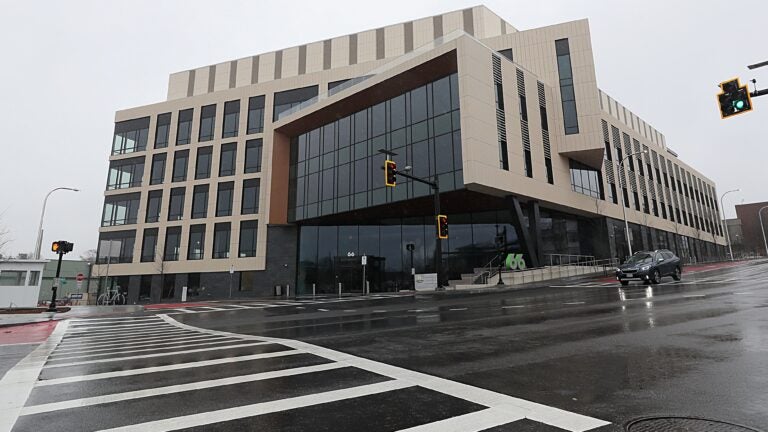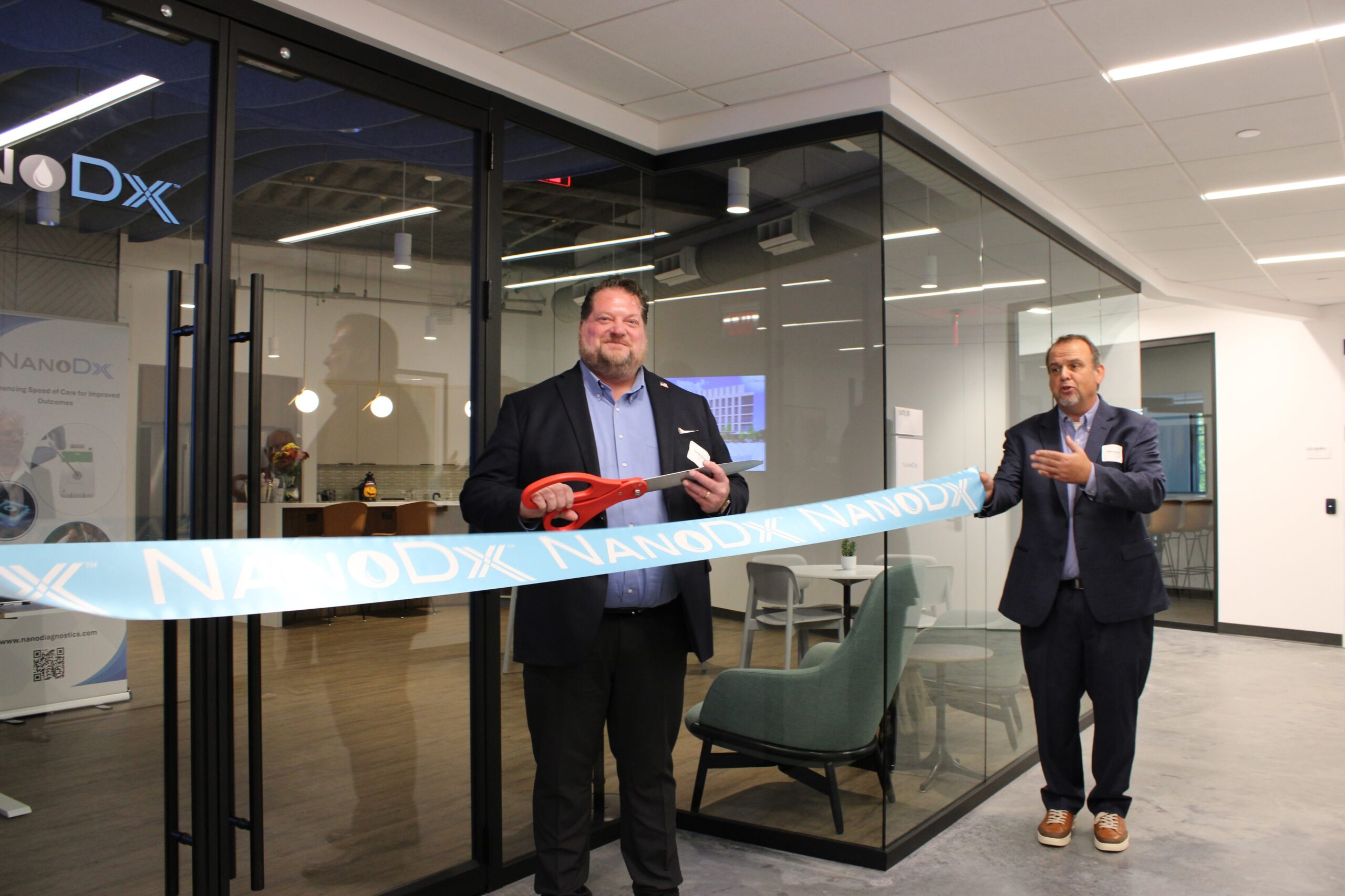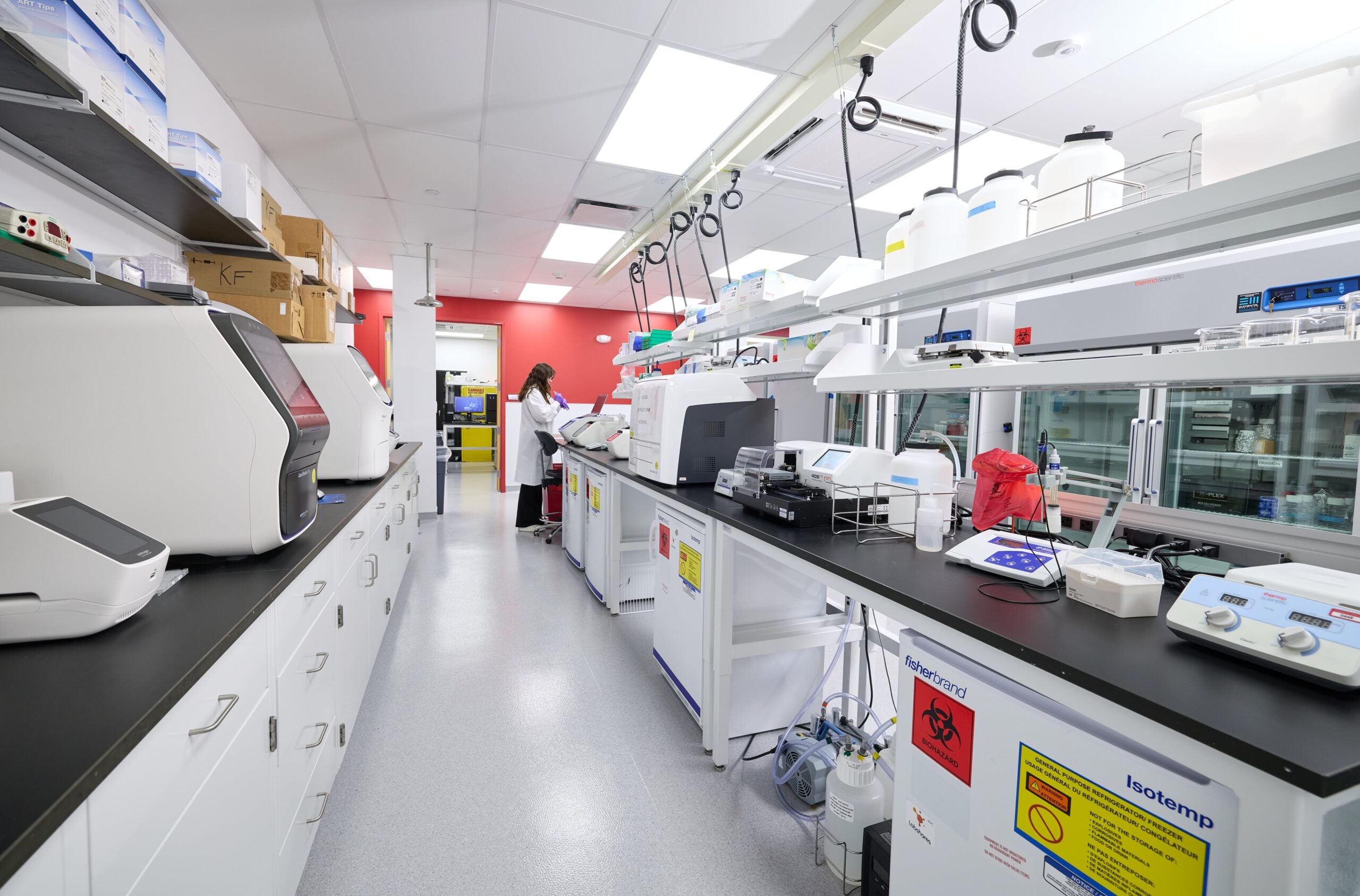The Boston Globe

Suzanne Kreiter/Globe Staff
The beleaguered lab market in Greater Boston offers plenty of empty space seemingly everywhere you look. But one exception can be found — and it’s near the Newton-Watertown line.
With a nearly 58,000-square-foot lease finalized this week by coworking space operator LabShares, the four-story building at 66 Galen St. is essentially fully occupied.
LabShares chief executive Philip Borden said the building was “in the Goldilocks zone” from his perspective: close enough to the biotech hotbed of Kendall Square and to Logan Airport, but with manageable commutes for suburban executives and lower lease costs. Borden is nearly maxed out at the current location for LabShares, which offers 44,000 square feet of coworking space for biotechs at a nearby complex in Newton. This move to expand into 66 Galen will more than double his company’s footprint.
“We’re making a big bet here and I’m excited to do it,” said Borden, who acquired LabShares with investor Pacific Lake Partners from founder Jeff Behrens two years ago. “This building is going to help us be successful.”
The 224,000-square-foot building was completed last year without a tenant lined up, amid a growing glut of supply. Co-developer Davis Companies had originally hoped to attract a big pharma tenant that would lease the entire thing. But then biotech entrepreneur Greg Verdine showed up. While he wasn’t about to occupy the whole building at big-pharma prices, he provided crucial momentum by leasing more than half of the space for two of his companies. More recently, two other life sciences companies, NanoDx and Psivant, each took about 20,000 square feet.

Brokerage JLL analyzed leasing activity in the Greater Boston market over an 18-month period ending in June, at Davis’s request. With those three deals, the Galen Street building saw the largest reduction of empty space in the entire lab market over that time: 155,000 square feet. That was before LabShares arrived, a lease that brings the building up to 95 percent occupancy, with only around 10,000 square feet still available there. (JLL’s analysis also took place before two big leases were announced for drugmaker Eli Lilly and Co. in the Seaport, and AI company Lila Sciences in Cambridge.)
JLL executive Bob Richards said the building is outperforming the market at a time when around one-third of the region’s lab space is empty. Big selling points he cited include amenities such as a fitness center, first-floor coffee shop, an amphitheater-style lobby, free parking under the building, and outdoor decks overlooking the Charles River.
Boston Development Group initially assembled the site, and sought a codeveloper to build out and market the property. Davis chief executive Jonathan Davis said he saw great potential in the location when his firm teamed up with BDG about four years ago, considering its proximity to a Mass. Turnpike exit, the Watertown bus terminal, the Charles River paths, and the shops and restaurants of Watertown Square. Another advantage that emerged more recently: The city council’s rezoning a year ago of the Square and its surroundings has the potential to bring thousands of new housing units over time.
Davis said he also realized his firm needed to be aggressive with its lease terms, given the broader market conditions, to make the building more appealing than nearby rivals.
Verdine, a pioneer in chemical biology, found all of those aspects appealing when he started looking for a new home for LifeMine. He said his friend, investment banker Jeff Leerink, suggested that Verdine take a look at 66 Galen. Eventually, he and Davis hit it off. LifeMine started moving there in September, and VidaVinci opened up earlier this month. Once the word got out that Verdine was moving in, his phone started ringing, with calls from other prospective tenants, wanting to learn more.

Verdine’s lease was one of many factors in Borden’s decision to expand at 66 Galen. The original LabShares location is bustling because biotech entrepreneurs can save money there by not having to fit out their own lab space. More than 25 biotechs are in LabShares today, and Borden expects to eventually accommodate another 20 to 30 at 66 Galen after expanding there, in two phases next year.
Borden likes that he’ll be able to show potential clients around a busy lab building — as opposed to a half-empty one.
“We want to create an active, vibrant ecosystem,” Borden said. “No one wants to be in an empty lab. … They will feel that energy. They will feel that activity. That’s a difference maker for our business.”



